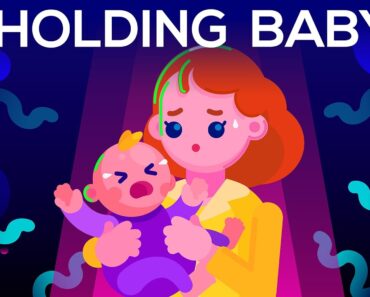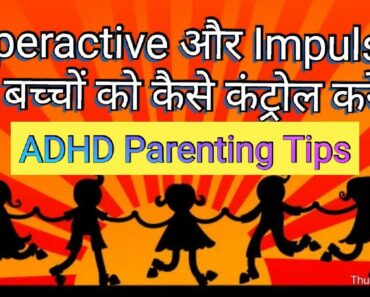Breastfeeding beyond infancy is known as extended breastfeeding. Although exclusive breastfeeding is recommended until six months of life, breastfeeding beyond infancy could provide a child with better nutrition and immunity competence.
A child who is breastfed beyond infancy may find it easier to gradually stop breastfeeding and start weaning naturally. This may help maintain the emotional well-being of both mother and child. You may seek a pediatrician’s advice to plan your toddler’s weaning diet.
Read this post to know more about the benefits, common queries related to extended breastfeeding, the challenges,and ways to deal with it.
Is Breastfeeding Beyond Infancy Recommended?
The American Academy of Pediatrics (AAP)recommends exclusive breastfeeding for the initial six months of life and breastfeeding with solid foods until age one. Breastfeeding beyond infancy,that is,beyond one year of life, can be chosen according to the mother’s and child’s willingness (1).
Exclusively breastfeeding for the first six months of life is recommended by the World Health Organization (WHO) for optimal growth and development of a baby. The WHO recommends adding safe, complementary foods to a child’s diet to provide adequate nutrition if they are breastfed from six months to two years or beyond (2). It means you can continue to breastfeed the child even beyond the age of two years while providing them solid food.
According to anthropologists, breastfeeding duration can be from birth to two and a half years or seven years in modern humans. It is similar to many primates weaning their offspring until they erupt their permanent teeth. In humans, the first permanent teeth usually appear between the ages of five and a half and seven years(3). Children may also attain better immune function around the same period. Therefore, breastfeeding until the eruption of permanent teeth is possible if not prevalent, according to experts (4).
What Role Does Breast Milk Play In An Older Baby’s Diet?
Breast milk can provide additional nourishment to a child. However, this depends on the amount of breast milk your child is feeding. Although a toddler can get nutrition from a solid diet, breast milk also provides essential nutrients, such as vitamins, and immunity-benefitting substances. This may reduce the risk of certain illnesses and deficiencies in toddlers.
The mother’s breast milk supply could influence how much breast milk the child gets to feed. Children who drink small amounts of breast milk may not receive adequate nutrients from breast milk. Therefore, you may use solid foods to complete their nutritional requirements. You may seek a pediatric evaluation of your child’s growth and dietary needs since these may vary in each child.
Will Breastfeeding Beyond Infancy Make The Weaning Process Complicated?
Not always. You may begin the weaning process when your child initiates. Some babies may prefer to wean earlier, whereas others may start weaning later. After six months of age, it is natural to begin weaning, and there is nothing wrong with introducing a solid diet.
Some babies may gradually change from breastfeeding to weaning, closer to one year of age. However, it is normal if some children begin weaning in their toddler years. Although breast milk provides many benefits, it is recommended to include solid food after six months of life.
Your toddler may be happy to explore new tastes and the texture of food. Many children who are breastfed beyond infancy may outgrow breastfeeding on their own and begin to self-wean.
What Are The Benefits Of Extended Breastfeeding?
Extended breastfeeding can be beneficial for both mother and child. The benefits of breastfeeding beyond infancy may help reduce the risk of the following illnesses in mothers (5).
- Hypertension (high blood pressure)
- Delay maternal fertility due to lactation amenorrhea
The child may enjoy the following benefits from extended breastfeeding.
- Antibodies, cells, and hormones in breast milk can boost a child’s immunity
- Protects against common childhood illnesses, such as diarrhea and pneumonia
- Reduces the risk of obesity and overweight in childhood and adolescence
- Prevent dehydration while recovering from infections
Breastfeeding may increase the bonding between mother and child, and children often find comfort in breastfeeding. Some toddlers may prefer to breastfeed before sleeping. Breastfeeding may also help to soothe a child on is unwell.
The Role Of Extended Breastfeeding In The Emotions Of Mother And Child
Breastfeeding can be comforting for babies and mothers and, thus, may enhance their interpersonal relationships. Rapid or forceful weaning could impact a child’s emotional well-being. Extended breastfeeding allows natural weaning while the child can maintain the emotional attachment to the mother.
A sudden cessation of breastfeeding may cause a shift in maternal hormones, which maylead to temperamental issues, such as depression, among many women. Extended breastfeeding with natural weaning may facilitategradual changes in hormones, which could be physically and mentally more comforting for the mother.
What Are The Challenges Of Extended Breastfeeding?
The following challenges could be faced by mothers who breastfeed a child beyond infancy.
- Comments and suggestions from people about feeding an older toddler may make the mother conscious about breastfeeding in public.
- Toddlers may not mind asking for breast milk in the middle of shopping in a supermarket or children’s park. However,it may make for an awkward situation for the mother.
- The toddler may begin asking for breastfeeding when they are bored or when they want your attention. In such cases, you may have to divert their attention to something else.
- Toddlers may demand breastfeeding only to quench their thirst. You may offer them water in such situations.
- Fussy eaters with teeth may bite while breastfeeding. You may say “No” to avoid future bites during nursing.
You may set rules and provide instructions to the toddler for when they can ask for breastfeeding. A fixed breastfeeding routine could also let the toddler know when to expect the next feed. While these steps could help overcome challenges related to a toddler, many mothers may wonder about ways of dealing with others’ perceptions.
How To Handle Negative Reactions To Extended Breastfeeding?
The decision to breastfeed your child beyond infancy is up to you and your child. You may remind the loved ones and others who insist you to wean that it is your choice. You may trust your instincts more than others’ opinions regarding changing your child’s diet.
Breastfeeding in public is protected by law in many countries, so you can breastfeed outdoors (6). Remember, extended breastfeeding is between you and your child. Therefore, focus on providing the nourishment the little one needs rather than what others think of it.
Is Nursing Your Toddler Possible During Pregnancy?
You can breastfeed your toddler when you are pregnant. However, it can be physically demanding for some mothers. The taste and quantity of breast milk may also change during pregnancy. In some cultures, women tend to breastfeed older children along with the newborn. There is nothing wrong with it. But if you do not want to breastfeed a toddler after the baby is born, it is advisable to begin weaning the older child before you deliver (7).
You may seek advice from a lactation consultant if you plan to breastfeed a toddler along with a newborn. Since newborns should be exclusively breastfed for the first six months, and more frequently, it may not be easy to breastfeed a toddler, too. Moreover, you need to ensure that a sufficient amount of breast milk is available to your newborn.
Breastfeeding beyond infancy may continue for as long as you and your child are comfortable with it. You may gradually begin weaning the toddler to meet their additional nutritional needs. Extended breastfeeding may make it easier to wean the toddler smoothly while also giving your body the time to adjust the milk supply. Also, it can provide the toddler with several benefits, thus do not hesitate to try breastfeeding beyond infancy.

































